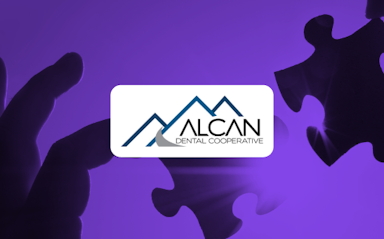How Dental Billing Outsourcing Can Boost Your Practice's Profitability
In the ever-changing landscape of dentistry, dental professionals must stay ahead of the advancement curve in terms of development, growth, and hiring. Therefore, it is important to have a well-qualified team that minimizes overhead costs without reducing the profit of the practice.
Amidst the economic uncertainties of the pandemic, many dental service organizations have found a solution to cutting costs and optimizing operations through outsourcing their revenue cycle management.
Outsourcing improves profits by up to 10 per cent in net collections, boosting team morale. -
Keeping this context in mind, let’s examine the benefits of dental billing outsourcing and how it can benefit your practice management team.
To outsource or not to outsource
Understanding the needs of your dental practice, such as “Should I outsource my dental billing operations?” is a question that more and more dentists and practice owners are asking themselves. The answer often varies and is generally dependent on these three crucial factors.

Your dental practice needs.
Assessing the needs of your dental practice is determined by the volume of tasks, billing workload, and requirements for scalability.
Type of service best suited.
Choosing a service that specializes in your area can ensure compliance with specific coding and billing practices. Some practices may only need help with specific aspects of billing, such as coding or claims follow-up, while others may want to offload billing tasks completely.
Capital gain from outsourcing your RCM
Reduce overhead costs associated with hiring, training, and maintaining an in-house dental billing team. Therefore, staying updated with regulatory changes while ensuring that your practice benefits from advanced tools without the need for continuous investment.
Understanding the needs of your dental practice
To understand the impact your current dental billing pipeline has on your revenue cycle, we must first consider the various direct and indirect costs that your practice is currently incurring.
Direct Costs
Benefits and employer fee, Clearinghouse fee, Statement fee, Direct claim costs,Hourly wages.
Indirect Costs
Claim rejections, denials, reduction in cash flow, and bad debts.The second consideration would be the safety of your patients’ data on outsourcing. This is crucial, and the outsourcing team should comply with the Health Insurance Portability and Accountability Act HIPAA regulations.
Choosing the RCM Outsourcing Service type you need
A proper solution needs to be selected and implemented depending on your practice's billing requirements. Let's examine the two major types of outsourcing among the variety of dental services in the USA.
Basic outsourcing, as the name suggests, outsources all of your billing tasks, including claim and denial management, to a team of experts. Most outsourcing firms offer this service, but it requires an in-house team at the service location to coordinate and handle processes such as patient registration and credentialing.
Fullstack outsourcing delivers the whole package. It is when you hand over almost the entirety of your revenue cycle to an RCM team. These dental billing outsourcing services involve the provision of software or technology tools that work in tandem with a team of experts. They cover almost every aspect of the billing cycle and may even provide practice consultation.
| Basic outsourcing | Fullstack outsourcing | |
|---|---|---|
| Claim management | Yes | Yes |
| Rejection management and claim re-working | Yes | Yes |
| Denial management | Yes | Yes |
| Financial reporting | Yes | Yes |
| Handling patient statements | Yes | |
| Credentialing | Yes | |
| Eligibility verification | Yes | |
| Claim research and follow-up on A/R | Yes | |
| Dental coding services | Yes | |
| Charge submission | Yes | |
| Practice Management Software (PMS) | Yes | |
| No extra clearinghouse fees | Yes | |
| No need for fulltime billing staff | Yes |
Remember, Outsourcing doesn't necessarily mean the team should be disbanded; instead, they can be delegated to contribute more to other projects. An example would be creating a financial counselor or finance trainer so your patients can better understand benefits and other claim-related concepts within the RCM outsourcing services.
CareStack offers CareRevenue RCM Solutions, a fullstack outsourcing collusion that offers eligibility and benefit verification, dental claims billing, receivables and denial management, payment posting and reconciliation, and medical billing for dental procedures. The service is designed to ensure that dental RCM processes in an office are optimized, while driving efficiency and profitability. Customers have reduced their day sales outstanding by upto 50% after they started using CareRevenue.
Extremely happy with CareRevenue
"I cannot speak highly enough of CareRevenue. The solution brought a lot of discipline into my practice and I no longer have to call insurance from my office, and that's been a source of joy for my staff. There was a point where my day sale outstanding used to be over 140 days. The CareRevenue team has been able to cut that by half and now we're on track to cut it by another half."

Ishtiaq Rouf, GP, Perio
Owner, West Annapolis Family DentistryDental billing outsourcing: Advantages Versus Disadvantages.
To have a detailed understanding of how dental billing outsourcing increases profitability, let us examine its advantages and disadvantages:
Advantages
Eliminates overhead costs
Improves cash flow
Reduces the risk of insurance-payor debt
Improves patient satisfaction
Reduces opportunities for internal fraud and embezzlement
Facilitates increased focus on patient care
Disadvantages
Limits flexibility in involved processes
Reduces the control of the practice in the billing process
Leads to existing billing staff being reassigned to other departments.
Estimating ROI from outsourcing
We have to factor in real-world metrics, which provide an estimate of the actual Return on investment (ROI) in outsourcing. These are the First Pass Acceptance Rate, Days in Accounts Receivable, and Net Collection Rate.
First Pass Acceptance Rate FPAR
FPAR is the number of claims accepted for processing by the payor on their first submission. It is calculated as a percentage of claims accepted by the payor to the total number of claims filed. This Key Performance Indicator KPI shows how efficient your revenue cycle is. In an ideal scenario, FPAR is above 95 percent at all times.
Days in Accounts Receivable
Days in Accounts Receivable is the average time it takes to receive payment for a service. Ideally, the Days in A/R should be under 50 days. To post a profit, it needs to be below 30 days.
Net Collection Rate NCR
The NCR gives an insight into the total gain or loss of collection in your revenue cycle. It indicates the amount due from payers and patients collected after contractual adjustments. The Net Collection Rate is the percentage difference between the total charges and the payor-disallowed amount to the total payments.

Our days in A/R dropped by more than 30%
"Our days in A/R dropped by more than 30%, and our net collections increased just after the first three months of using CareStack."

Himesh Kana, DDS
Owner, Dental DepotOpting for one of the best dental management software or taking advice from the right dental billing outsourcing company can alleviate all your troubles related to billing and managing your administrative duties.
Looking for dental billing outsourcing solutions? Choose CareStack! Talk to our experts today




